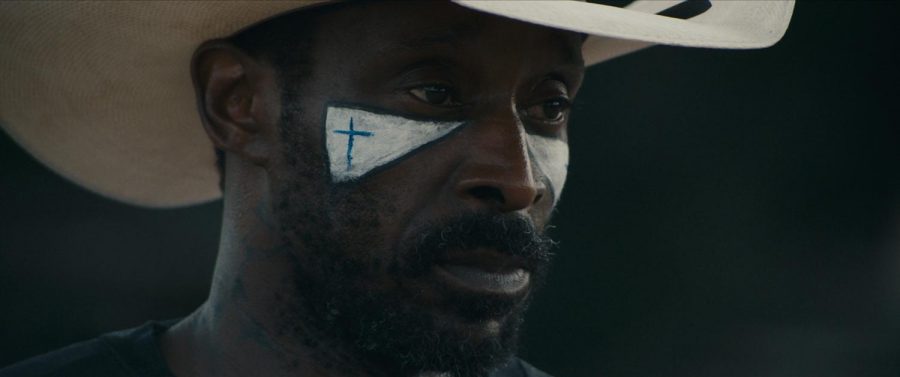From the beginning of Annie Silverstein’s “Bull,” it is apparent that Kris (Amber Havard) has become resigned to her circumstances. The adults around her show her little emotional support, and the friends she has are only there if she has something to give them in return. She lives in an uncaring world, one in which there is a never-ending cycle of children becoming products of the adults around them.
“Bull” is director and co-writer Annie Silverstein’s feature film debut. It premiered at the 2019 Cannes Film Festival in the Un Certain Regard section. The film follows 14-year-old Kris, who lives on the outskirts of Houston, Texas, with her grandmother while her mother is serving jail time. Her neighbor Abe (Rob Morgan) is an aging bullfighter, but is now retired and unable to let go of the rodeo. After Kris breaks into his house one night and is later caught by Abe, she is forced to either help him with various tasks or be sent to a juvenile detention center. Thus, she discovers the world of rodeo and is drawn to bull riding as a temporary escape from life.
The film is not immune to playing with the same tropes that audiences see time and time again in this particular genre. While the story is one that can be associated with several other films, Silverstein brings a sense of understanding and humanity to her characters and her writing, combined with that of co-writer and executive producer Johnny McAllister, makes this film stand out just slightly. The emotional depth and realism of each person on the screen is what makes the film striking and the audience want to hear this specific narrative.
The film utilizes a documentary-esque style that makes it have a distinctly authentic feel. The scenes cut in and out, giving the audience an intimate look into the characters’ lives. As the film progresses, these slices of life gain new meaning. The future scenes become more plot-driven, but it is the small moments that help break down the barriers between the audience and the characters on screen. There is a unique sense that life has gone on before this film begins and that it will continue to go on once it ends.
Havard is a strong newcomer who brings a precise determination to Kris’ character. She draws the audience in while still keeping up the character’s carefully placed shields. When Kris finally smiles brightly for the first time late in the film, it is a profound moment that lights up the screen. To see Havard peel back the layers of this stoic girl so quickly is to catch a glimpse of the beauty of the character and how the world around her has caused her to be so resigned.
The most notable element of the actors’ performances is the chemistry and power shared between Havard as Kris and Morgan as Abe. The arc between the two characters is evident as Abe takes on a mentor-like role with Kris, but the dynamics of the two performances are more than enough to make this a fresh take. The subtle emotional connection of the characters shows how the two need each other, even if they don’t acknowledge it. They are both navigating an uncertain world that they feel is leaving them behind and moving on around them.
The stark and honest realism of the film is well accomplished, but it is also where the film has some issues. The film occasionally has slow points, which in turn only heighten the tragic events the characters experience, making it hard to see the light at the end of the tunnel for either of the two leads. If it were not for Havard and Morgan’s profound performances, the slow pacing would bring the film down, but the two carry the film through.
“Bull” is not revolutionary in what it brings to the table, but it does offer a thoughtful look at the draw of the rodeo and the people who live for it. Bull riding can be seen as a dangerous game, but for some, it is the only place where control and hope are felt in a world of constant sorrow.
“Bull” was released on May 1, 2020. It is available as video on demand.
A version of this article appeared in the Monday, May 4, 2020 e-print edition. Email Kaylee DeFreitas at [email protected].


























































































































































